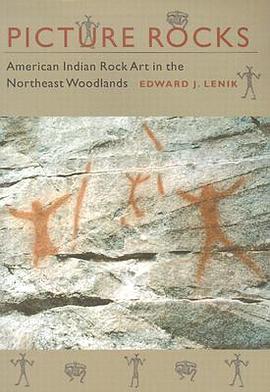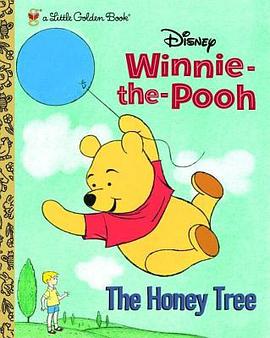

具体描述
Are women and men biologically destined to be in perpetual conflict? Does evolutionary genetics adequately explain sexual aggression? Such questions have been much debated in both the media and academia. In particular, the notion that rape is an evolutionary adaptation, put forth by Randy Thornhill and Craig T. Palmer in their book A Natural History of Rape (MIT Press, 2000), vaulted the debate into national prominence. This book assesses Thornhill and Palmer's ideas, as well as the critical responses to their work. Drawing on theory and data from anthropology, behavioral ecology, evolutionary biology, primatology, psychology, and sociology, the essays explain the flaws and limitations of a strictly biological model of rape. They argue that traditionally stereotyped gender roles are grounded more in culture than in differing biological reproductive roles.The book is divided into three parts. The first part, "Evolutionary Models and Gender," addresses broad theoretical and methodological issues of evolutionary theory and sociobiology. Part 2, "Critiquing Evolutionary Models of Rape," addresses specific propositions of Thornhill and Palmer, making explicit their unexamined assumptions and challenging the scientific bases for their conclusions. It also considers other studies on biological gender differences. Part 3, "Integrative Cultural Models of Gender and Rape," offers alternative models of rape, which incorporate psychology and cultural systems, as well as a broader interpretation of evolutionary theory.
作者简介
目录信息
读后感
评分
评分
评分
评分
用户评价
这本书的论述风格在我看来,更接近于一部社会学田野调查的扎实记录,而非纯粹的理论构建。作者花费了大量的篇幅去描绘不同文化背景下,社会规范是如何塑造个体对“男性气质”和“女性气质”的内化过程的。他/她细致地对比了父权制社会中权力分配的微妙之处,并着重分析了语言结构——比如代词的使用、隐喻的构建——如何潜移默化地强化了既有的等级关系。尤其令人印象深刻的是其中关于“社会脚本”的章节,作者通过对大量案例的梳理,揭示了社会如何通过教育、媒体乃至家庭仪式,系统性地将性别角色“烙印”在个体心智中,使得偏离这些脚本的行为会立刻招致社会惩罚。这种对微观互动的关注,使得宏大的理论框架变得触手可及且充满现实张力。读完这部分,我感觉自己对日常生活中那些不经意的眼神交流、肢体语言背后的权力运作有了更敏锐的洞察力。作者的文字精准而富有穿透力,尽管内容沉重,但其叙事节奏把握得当,总能在需要喘息时提供一个侧面的、更具人文关怀的视角来平衡那种过度理性的分析。
评分这部作品的开篇便以一种近乎解剖学的冷静笔触,深入探讨了人类社会结构中性别二元对立的根源。作者似乎并未满足于停留在表层的文化现象,而是试图挖掘驱动这些现象的深层生物学机制。他/她援引了大量的演化心理学研究,将择偶策略、亲代投资差异等概念引入日常的性别互动分析中,让人在阅读时不得不重新审视那些习以为常的“自然”状态。例如,对于攻击性行为在不同性别中的表现差异,作者提出了一个极具争议性的观点:某些看似是社会建构的特质,其实是应对远古环境压力的适应性残留。这种将文化现象追溯到数百万年前的叙事方式,虽然提供了宏大的历史视角,但也引发了关于决定论与自由意志之间界限的深刻思考。阅读过程中,我反复被其严谨的逻辑链条所吸引,那种将复杂的人类行为简化为一系列生存概率计算的尝试,既令人震撼,又在某种程度上感到一丝寒意——仿佛我们所有的情感纠葛,最终都能被编码成一段冰冷的算法。全书在引言部分就奠定了一种强烈的、非批判性的观察者姿态,仿佛一个局外人正在记录一个既定的、无法更改的剧本,这为后续对更敏感议题的探讨设置了一个极高、也极具挑战性的理论基调。
评分这部作品最让我感到震撼的,是其对于“社会规范演变速度”的对比分析。作者精心挑选了几个在过去五十年内经历剧烈社会变革的西方国家作为对照组,详细对比了法律和文化观念同步演进的路径和阻力。他/她以一种近乎钟表匠般的精确度,剖析了进步主义浪潮中哪些变革是社会结构层面产生的、哪些仅仅是表层符号的更迭。书中引入了一个关于“规范滞后性”的概念,解释了为何在法律已经明确禁止某些歧视行为后,深植于集体无意识中的性别期待仍会持续发挥作用,造成事实上的不平等。这种对时间维度上社会变迁的精细测量,为理解当前的社会僵局提供了极佳的诊断工具。我边读边在脑中勾勒出一张复杂的曲线图,标记着每一次权利的扩大与每一次保守反弹的节点。作者的论证逻辑严密,数据引用扎实,让读者清晰地认识到,社会正义的实现绝非一蹴而就的线性过程,而是一场持续不断的、充满反复和拉锯的动态博弈。
评分整本书的收尾部分,从前期的宏观历史与微观行为的探讨,逐渐收束到一个关于伦理与未来可能性的哲学思辨。作者并没有急于给出一个乌托邦式的解决方案,而是转向了对人类道德想象力的边界进行探索。他/她探讨了如果从演化的角度看,人类是否有能力“超越”那些被编码在基因或早期文化中的生存本能,去构建一个真正平等的社会秩序。这部分充满了对“什么是人性的本质”这一古老命题的重新叩问,但这次的叩问,是建立在坚实的社会科学基础之上的。我被书中那种既不回避现实的残酷,又勇敢地向未来提出挑战的姿态深深打动。这种收尾,与其说是结论,不如说是一份邀请——邀请读者跳出书中的框架,带着所学的知识,参与到对未来人类共同体形态的持续构建中去。这种开放式的收束,避免了任何形式的教条主义,使得这部作品的价值超越了其作为一部学术著作的范畴,成为了一份对时代精神的深刻记录和一份对未来责任的严肃提醒。
评分我对书中关于“身份认同”的探讨尤为激赏。作者没有陷入简单地将性别视为单一维度的窠臼,而是引入了交叉性(intersectionality)的分析框架,将种族、阶级与性别经验紧密地缠绕在一起进行考察。这种多维度的视角极大地丰富了我们对边缘化群体体验的理解。书中举例的某些少数族裔女性在面对双重甚至三重压迫时的生存策略,既令人心碎,又展现了惊人的韧性。作者的笔触在这里变得富有同理心,不再是开篇那种冷峻的科学观察,而是充满了对生命复杂性的尊重。他/她巧妙地运用了历史档案和口述回忆,使得理论分析拥有了血肉和温度。这种叙事上的张弛有度,让这部著作避免了成为一部枯燥的学术专著,而更像是一份充满历史重量的证词。我尤其欣赏作者在处理这些敏感议题时所展现出的审慎态度,他/她承认了理论模型的局限性,并强调了个人能动性在打破结构性束缚中的潜在力量,这在整体偏向结构决定论的论述中,提供了一丝重要的希望之光。
评分 评分 评分 评分 评分相关图书
本站所有内容均为互联网搜索引擎提供的公开搜索信息,本站不存储任何数据与内容,任何内容与数据均与本站无关,如有需要请联系相关搜索引擎包括但不限于百度,google,bing,sogou 等
© 2026 book.wenda123.org All Rights Reserved. 图书目录大全 版权所有




















